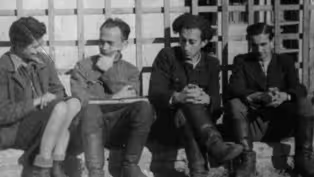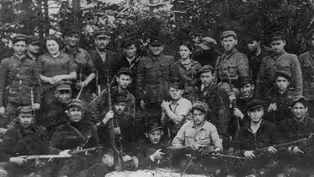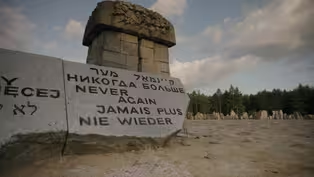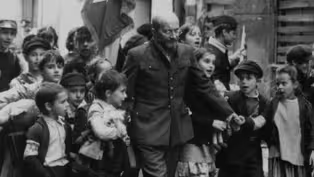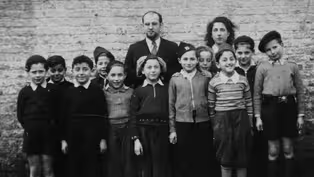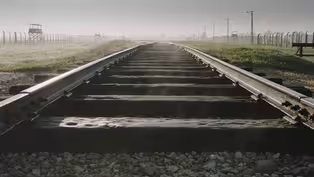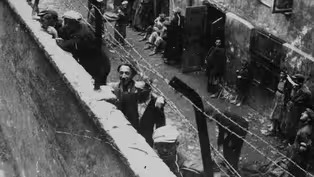
The Role of Women in the Resistance
Clip: 1/27/2025 | 5m 36sVideo has Closed Captions
Women played an outsized role in the Jewish resistance, risking their lives daily.
Because men could so easily be identified as Jews, women played an outsized role in the Jewish resistance, risking their lives daily to procure arms and rescue other Jews. One of those female resistance fighters was Bela Hazan.
Problems playing video? | Closed Captioning Feedback
Problems playing video? | Closed Captioning Feedback

The Role of Women in the Resistance
Clip: 1/27/2025 | 5m 36sVideo has Closed Captions
Because men could so easily be identified as Jews, women played an outsized role in the Jewish resistance, risking their lives daily to procure arms and rescue other Jews. One of those female resistance fighters was Bela Hazan.
Problems playing video? | Closed Captioning Feedback
How to Watch Resistance: They Fought Back
Resistance: They Fought Back is available to stream on pbs.org and the free PBS App, available on iPhone, Apple TV, Android TV, Android smartphones, Amazon Fire TV, Amazon Fire Tablet, Roku, Samsung Smart TV, and Vizio.
Buy Now
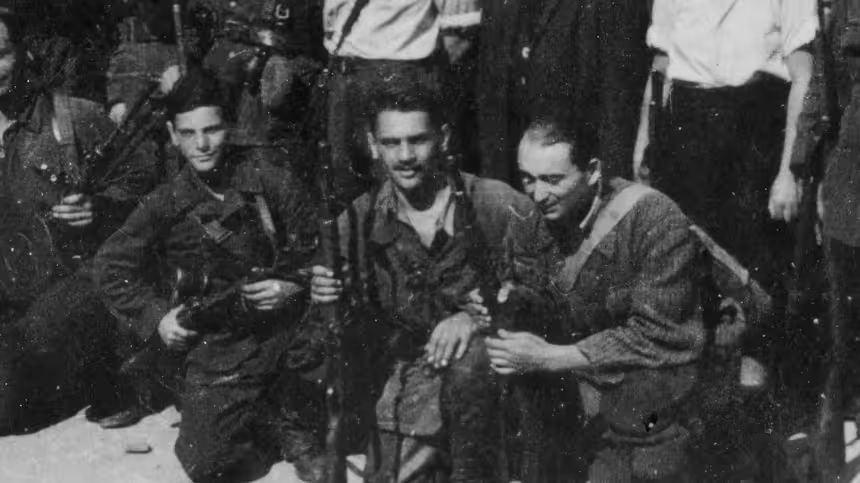
Learn More
"Resistance: They Fought Back" provides a much-needed corrective to the myth of Jewish passivity.Providing Support for PBS.org
Learn Moreabout PBS online sponsorship[ominous music playing] When my mother became a courier, the first, uh, task was to move into Grodno.
In Grodno, she was supposed to see what's going on with the Jewish community.
Because there were no connections.
You-- You have to understand, there was no telephones.
All telephones were cut.
There was no mail service.
There was no Internet.
"Each one of us preferred to fall in combat than be led as sheep to the slaughter."
"The movement's leadership "sought out girls with a gentile appearance "who would serve as liaison-couriers between the different locations."
"This role was unsuitable for boys, "who already, from the age of eight days, "had their Jewishness marked on their flesh.
"I volunteered for the role, "as I'd already gained experience "and self-confidence impersonating a gentile and going outside the ghetto."
They smuggled weapons, guns, and grenades and so on, and this was a very dangerous mission.
They also smuggled people out of the ghetto to put them in hiding places.
My mother, she was sent to Grodno.
I must remind you again that she was 19 years old.
"I went to the Labor Bureau in town.
"The clerk asked me whether I knew German, "and I answered him in poor Yiddish.
For 'vus,' I said, 'vas,' and so on."
[heart beats] "After a few sentences from me, he declared, "'You speak German very well.
"'You can take a position with us as an interpreter at the Gestapo.'"
[typewriters clacking] So, when she worked in that office, she managed to steal from the desk all kinds of papers and stamps, and she brought them to Vilna, and they were used to make false identities for-- for other people or traveling documents and so on.
She was several months, almost half a year in Grodno.
Her two friends, who were also couriers, Tina Schneiderman and Lonka Korzybrodska, came to her room.
This was Christmas Eve, and my mother was invited by the Gestapo.
There was one officer who was-- I think, was in love with her, and he invited her to the Christmas party of the Gestapo.
And she said, "I'm sorry.
I cannot come, because I have two girlfriends."
And he said, "Bring them also with you."
He came to pick her up, and the three of them, they dressed in the best clothes that they-- that they had.
They went on Christmas Eve, December, 1941, to this Christmas party.
And this Gestapo officer took a picture of the three of them.
[camera clicks] YAARI: June, 1942, Lonka Korzybrodska was sent to Warsaw.
She was sent on a mission to-- She had to deliver two guns to the underground and information.
And she was on the train in the middle between Bialystok and Warsaw, and her luck didn't hold, and she was captured by the Gestapo.
[steam hissing] So when Lonka did not come back to Bialystok, my mother volunteered to follow her steps and to-- to look for her.
So she went on the train from Bialystok to Warsaw.
And when the train got to Malkinia, the gendarmes who were on the train told her, "We are waiting for you.
Come-- Come with us."
And why were they waiting for her?
Because Lonka, she was very courageous and very self-assured.
She carried with her the picture of the three couriers, and this fell into the hands of the Gestapo.
REENACTOR: "People in the station "looked at me with pitying expressions.
"Soldiers asked me, "'Little girl, what did you do, "that they're taking you like this?'
"I tried my best to hold my head up so that no one "could know what was going on in my heart.
"I knew that my chances were gone, "that at any moment, the Germans were likely to kill me."
And after three days of severe tortures, broken bones, and a tooth was broken.
And, uh, after three days, they threw her into an isolation cell.
For six weeks, she was in darkness all alone.
But she kept her Polish identity.
The Gestapo did not suspect that she's a Jew.
The Evolution of Armed Resistance
Video has Closed Captions
Clip: 1/27/2025 | 2m 54s | Kovner wrote a Manifesto, the first published call for Jews to fight back. (2m 54s)
Jewish Partisans in the Forest
Video has Closed Captions
Clip: 1/27/2025 | 3m 26s | Many groups of Jews escaped the ghettos to fight in the forests, denying these areas to Germans. (3m 26s)
Video has Closed Captions
Clip: 1/27/2025 | 1m 46s | Even in Nazi death camps, Jews rebelled. (1m 46s)
Questioning the “sheep to the slaughter” myth…
Video has Closed Captions
Clip: 1/27/2025 | 1m 39s | Children were among the most tragic victims in the Holocaust. (1m 39s)
Video has Closed Captions
Clip: 1/27/2025 | 3m 41s | Few Jews had access to weapons in the Warsaw Ghetto, but they resisted nonetheless. (3m 41s)
Video has Closed Captions
Preview: 1/27/2025 | 30s | During the Holocaust Jews did not go to their deaths as sheep to the slaughter; they fought back. (30s)
Video has Closed Captions
Clip: 1/27/2025 | 5m 2s | The Warsaw Ghetto Uprising was the first armed battle against the Germans. (5m 2s)
Providing Support for PBS.org
Learn Moreabout PBS online sponsorshipSupport for PBS provided by:
